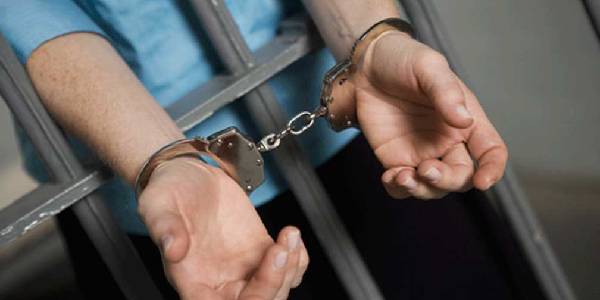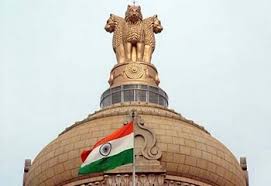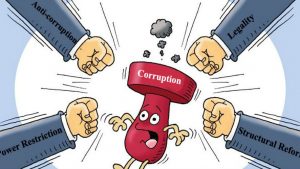
The chief anti-corruption laws of the Indian legislation which includes penalties due to bribery and public corruption offences are-
- Lokpal and Lokayukta Act, 2013 (LLA)
- Prevention of Corruption Act, 1988 (PCA)
- Indian Penal Code, 1860 (IPC)
According to the PCA, a person becomes guilty of a criminal offence when the person accepts gratification besides the legal remuneration in respect of any official act. Assisting and encouraging the commission to accept bribes is also considered as an offence. Whether a person bribes or attempt to bribe a public servant or plays middle men for bribing, everyone related to it held liable.
 The role of Lokayukta and Lokpal
The role of Lokayukta and Lokpal
The Indian Parliament also enforces LLA to represent a Lokayukta for States and Lokpal for the Union in order to inquire if there are accusations regarding corruption against any public official. The LLA necessitate each State to setup an anti-corruption organization by involving law under the state legislature. The Lokpal has the authority to inquire about all the complaints arise from the PCA against respective public office bearers, which may also include the current or past Prime Minister, a present or past Union Minister and any person who is or has been a Member of Parliament.
Important characteristics of bribery offences
The PCA mainly aims at public servants, which may include any person who is –
- In the service or pay of the Government, Government corporation or the local authority
- Responsible for the judicial administration
- A member of any university
- Nominated to conduct public duty
- An employee of any service commission
- A Government office bearer who controls the cooperative society
- Given power to perform elections
Criminal Offences falling under PCA, LLA and IPC
Moreover, the Prevention of Corruption Act also forms an unfavorable assumption if a public servant’s assets are unbalanced when compared to his or her income and cannot be satisfactorily accounted for. The provisions of the PCA are concerned despite of the place or control of the commission of a crime, as long as the offence is committed by a public official. The Judicial results have also inferred the term ‘public servant’ in the PCA as an array of officials such as bank employees in government and private banks as well as telecommunications.
unbalanced when compared to his or her income and cannot be satisfactorily accounted for. The provisions of the PCA are concerned despite of the place or control of the commission of a crime, as long as the offence is committed by a public official. The Judicial results have also inferred the term ‘public servant’ in the PCA as an array of officials such as bank employees in government and private banks as well as telecommunications.
The LLA allows the Lokpal to initiate trial against the accused after the investigation process is completed. The Lokpal can also impose penalties through its prosecution wing or begin prosecution in a special court proposed to be recognized to try offences under the Prevention of Corruption Act.
The IPC being the prime Indian criminal legislation, contains provisions relating to criminal conspiracy that are generally raised in corruption or bribery cases to charge a private party with involvement in the corruption matter along with the public servants involved in it. Encouraging the commission of an offence under the PCA as well as voluntary concealment of facts by an illegal act is also punishable under the Indian Penal Code (IPC). Omission or making false representation that initiates any kind of criminal offence are also held liable under the IPC.
